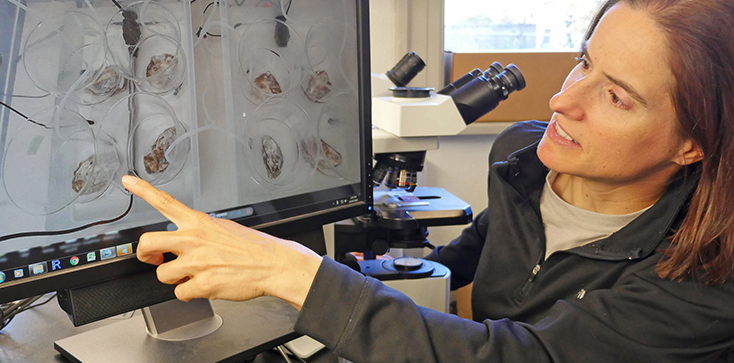Oyster farming is a $12 million a year industry in Oregon, and growers are proactively seeking preventatives against a deadly virus that has decimated European and Asian oyster farms.
Dr. Carla Schubiger in the Carlson College of Veterinary Medicine has identified three strains of probiotic bacteria in the Pacific oyster digestive tract that enhance the growth of young oysters and make them stronger. “To our knowledge, these are the first oyster probiotics that increase both disease resistance and larval growth,” Schubiger said.
Now, in a new project funded by the National Oceanic and Atmospheric Administration, Dr. Schubiger is developing a dried probiotic supplement that can be fed to oyster larvae in hatcheries to improve their health and vitality.
In the first year of the project, Schubiger’s team will feed larvae different combinations of probiotics, including the three promising strains that they previously isolated, then they will expose the larvae to near lethal amounts of a marine oyster pathogen, the bacterium Vibrio coralliilyticus. They will also conduct experiments without the pathogen. The goal is to determine the minimum concentration of probiotics needed to achieve the highest gains in growth and survival.
When the study is complete, they plan to collaborate with OFD Foods, a manufacturer of freeze-dried products in Albany, Ore., to develop a shelf-stable, dried probiotic supplement which will be tested at collaborating hatcheries on the West Coast and in Hawaii to see how it improves the growth and survival of larvae in a larger setting.










